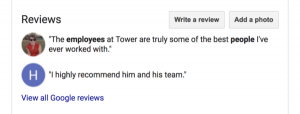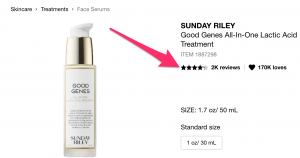Business ethics are essential component of any business strategy. Particularly, if we discuss the outbound communications like marketing and PR; ethics stand as even more vital element to be taken care of. The modern corporate code of conduct is depiction of professional ethics that an organization promises to follow and expects its staffers to abide by. Any violation of those promised values is considered an unacceptable professional behavior and might lead to server corporate ramifications for individuals as well as organization.
Having touched the importance of ethics in broader business context, let’s narrow this down to our topic of social media. Being a digital media professional, let’s understand the sensitive nature of ethics in social media. I’ll try to briefly cover the generally accepted ethics in digital media marketing, to facilitate fellow marketers and advertisers.
Motivation for This Topic:
The fundamental reason I picked up this topic was the general observation around the social networks. Particularly if we look at the geo-political events taking place in 2016, the topic turns even more important. Let me give you a couple of examples to make the case.
Recently, a leading cellular company of Pakistan (Ufone) accidentally retweeted and liked anti-government tweets, which led to a big outcry over social media. It was a big PR disaster for the company as its twitter managers failed to answer as to why they endorsed the tweets demanding PM’s resignation. Boycott Ufone was a top Twitter trend for almost 24 hours, which forced the company to not only clean up its twitter account but also formally issue a public apology with promise of due investigation.
Second example is from Britain, where people are expected to take part in a referendum to decide whether the United Kingdom should remain with European Union or leave it. Termed as “Brexit” referendum, it’s being considered a very strategic move that may change geo-political and economic stature of European Union. The campaign on social media in favour and against the idea (of leaving EU) are using many arguments and some hyper-nationalistic ideas in their favour.
This has led to some scary sentiments in expat entrepreneurs from all over the Europe who have business enterprises or interests in Britain. A young entrepreneur has shared his concerns in Huffington Post questioning the fundamental arguments being represented for the United Kingdom to leave EU.
So in the first example, it is corporate social media marketing and in second it is political social media that has led to a serious discussion over the ethics, SOP, usage, abuse, and disinformation on the social networks. Whether you are a business professional, a marketing enthusiast, a journalist, a political campaigner, or a PR agency that is handling media management for clients; you have to abide by certain informal but widely accepted rules.
Rules of the Game:
I believe that marketing of brand within social media is a positive step for the end users and public. However, we need a lot to do to make the vision perfect. Here are few recommendations to ensure your social media marketing remains ethical.
1. KYA – Know Your Audience:
Before embarking on any social marketing drive, make sure that you:
- Know about your audience, their preferences, interests and choices
- Have a complete demographic and psychographic overview
This will help you refine your target audience and also facilitate in developing anti-spam mechanism. In addition, it will allow you to segment the audience and send over relevant messages that will drive engagement; the ultimate goal.
2. Stay Away from Biases:
Businesses and marketers need to stay away from (negative) political, religious, ethnic, or any cultural bias that could be termed as controversial. A slight mistake can lead to a big PR disaster and loss of your job (as marketer). We have seen that many top social media managers got fired for just one wrong tweet.
3. Never Compromise On Privacy:
Privacy is a very sensitive domain as it is top concern of the internet generation. If you are doing some marketing via social media, make sure you do not violate privacy rules. Some companies extract Facebook and LinkedIn data to build their email campaigns. This is a cutting-edge sword and requires attention to core concerns. Just a promise of not spamming might not be enough, you need to give unsubscribe option with every message you deliver. To read more about ethical email marketing, refer to my old piece at Business2Community.
4. Be Transparent:
If you are endorsing some product, idea or personality; you need to disclose why you are endorsing it. Mentioning your relationship with that particular product, non-profit entity, brand or political entity in your campaign, handle, or bio is essential.
5. Speak Truth:
If you have some interest or affiliation in something being discussed, you need to politely communicate your affiliation. It does not require that you explain your interests but tell as to why are you supporting a particular thing. Another important element here is to be true to yourself as well as the audience.
6. Think Before You Tweet:
Internet if flooded with unauthentic information pieces, which has made the marketer’s job more complicated. Therefore, always verify what you share before sending it out for prospects. Any factual error may lead to embarrassment and negative perception of the brand.
7. Imagine the Impact:
If you are sharing some information through your social channel which has been acquired from a third party source, give clear disclaimers to avoid suspicions of conflict of interest. Moreover; be very careful about your tweets and retweets. Public perception matters a lot. For instance, you might retweet something a politician has said in order to spread the news but some may view it as your support for that person. This can be very tricky for your brand.
Conclusion:
Finally, if you do the campaigns with a documented marketing strategy, it can save you from many troubles. Probably the best way to avoid any misconception is to map your content and have a content calendar. Moreover, a strict monitoring mechanism has to be installed to ensure compliance with the code of conduct.
Digital & Social Articles on Business 2 Community(77)





